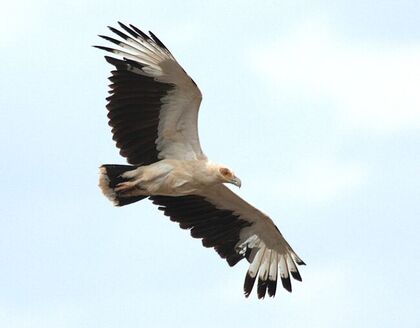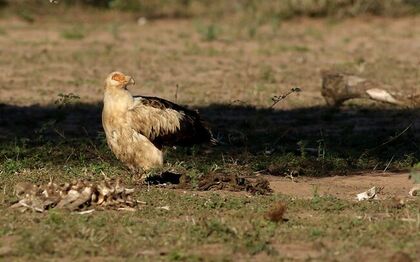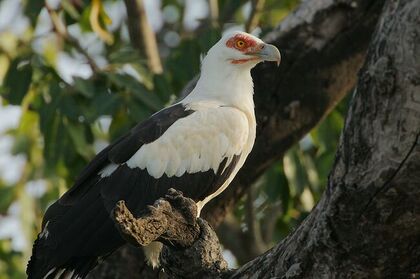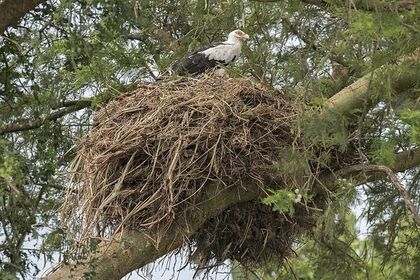Description
South Africa's only fruit-eating Vulture - the Palm-Nut Vulture - is a highly localised vulture that can only be found on the North Eastern coast, and is thus highly sought after by Birders. Junior Gabela can help you get closer to this bird!
Distribution
This white and black vulture is very closely linked to the Raphia palm tree, and is named after the Palm-Nuts that they eat. This tree normally only grows further north in South Africa, around Kosi Bay, but has been introduced further South to Mtunzini where a Raphia Palm Monument and boardwalk has been constructed. This makes these 2 destinations (Kosi Bay and Mtunzini) the prime spots to find your own Palm-Nut Vulture - although their distintcive under-wing pattern means that avid birders have occasionally sighted Palm-Nut Vultures flying almost 1000 KM out of their normal range in flying over their Gauteng gardens!
Where to find the Palm-nut Vulture
Palm-nut Vultures are known to be quite tame and not too concerned with birdwatchers gawking over them through their binoculars and taking rapid-fire photographs of them. Your best bet to see one will be around areas with many Raphia palms where they can sometimes be found perched on the tallest palm leaves, or other high vantage point in the morning sun cleaning and preening. They are large and white and stick out like a sore thumb, but be careful that you aren't getting confused with the African Fish Eagle who shares the locality and also perches in similar trees. It shouldn't be too hard to identify if you can get a look through binoculars, as the vultures have a bright red face and are generally whiter than the eagles, lacking the distinctive brown of the fish eagle.
How to identify the palm nut vulture
If you are only lucky enough to see one in flight, you can easily recognise their predominantly-white wing pattern through the white leading edge and windows, with only the trailing edge black. The fish eagle can look similar, but their wings are dark underneath with a striking white head and tail.
Conservation
While the Palm-Nut Vulture is not vulnerable to the carrion poisoning and poaching that our other Vultures fall victim to, it is still endangered and is under risk of habitat destruction in its range, where Raphia Palms are used as firewood and the land replaced with agricultural activities.
Book Now
The Palm-Nut Vulture is also one of our specialties. If this is one of the birds you are looking to check off your life-list, or you want the opportunity to take up-close photographs of, Junior Gabela has in-depth knowledge about the birds seasonal behaviours, preferred nesting sites and recent sightings in the area. Just be sure to add the Palm-Nut Vulture to your wishlist when booking and he will do his best to make it happen!




